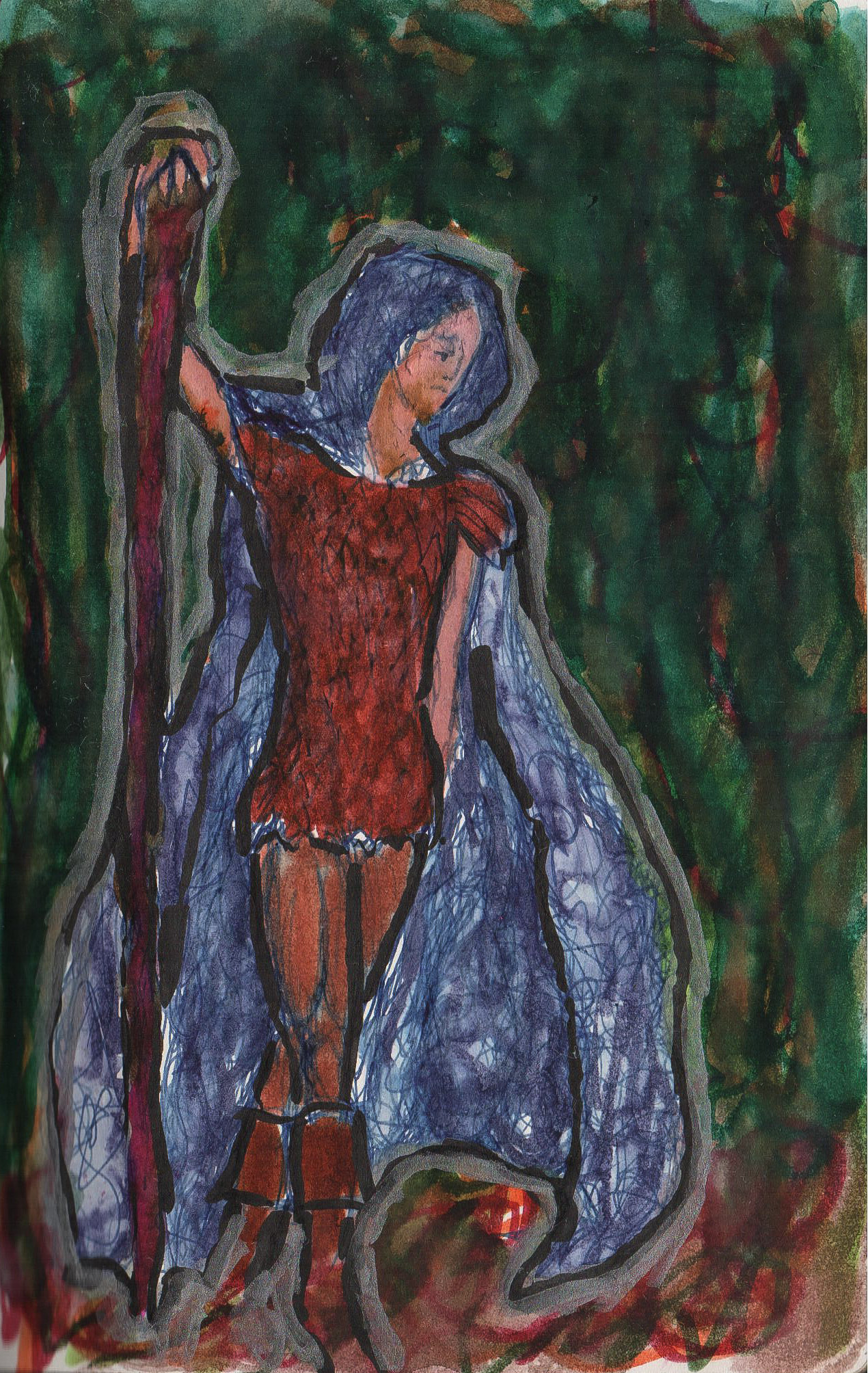
Yendor was not sure what he was looking for. He had come to the city, decaying, decrepit, ancient, crowded and yet thriving, looking for some scrap that had been missed over time by the sorcerers. There was a history that was forbidden, but it hadn’t always been so. Before Incarnate there were archives and records and deeds and an insurmountable amount of information that had to give some clue about what it was like before. When there were wizards, when there was more to magic than sorcery.
Chamakata Shahar had been a long journey. The ancient decaying city had once been the jewel of Faun, the archipelago civilization nestled in the Ta Sea. Yendor had traveled extensively as a musician in Watter’s troop. They had played festivals in the fields outside the city. When Danse had been taken prisoner, she and Yendor had been in the western island of Padu. Yendor had tracked her to the prison camp there, though she was gone by the time he had arrived. eventually he had to give up his search, and he had resolved to learn to control his wizardry by seeking out hidden coves of them. So far that too was proving fruitless. Then he remembered the old city on the Isle of Faun itself, in the center of everything. Unable to afford a ship straight to Faun, Yendor had traveled by foot across Island after island, working his way west. Sometimes he was able to earn some money in a tavern, saving it to pay passage on the next boat, sleeping in his tent rather than spending coin to stay at an inn. He hunted and gathered wild nuts and berries, fruit and whatever he could find. Sometimes passage was earned as a deckhand, though Yendor wasn’t much of a sailor.
Eventually, he made his way to Faun and then to the city. There were other cities, usually a trade center for each of the islands, some at the sea lanes, some inland, centralizing multiple harbors. No city was as big or ancient as Chamakata The people here were unfriendly and solitary as city folk tended to be. Yendor had not much experience within the city itself. It was labyrinthine and confusing. The library had been difucult to find. Once there, the books, scrolls and maps were kept in a warren of rooms on several floors, including multiple basements. The library was a city in itself. Some rooms hadn’t been set foot in in years. One his first day, Yendor got lost and could not find his way out, so complicated was the meandering construction. Eventually, he found another patron who directed him back to the main area.
The library had seemed the obvious place to start. Of course that would be where the purge had started. Surely anything revealing what wizards were, where they lived, what they believed had been eliminated from such a public and obvious source. But Yendor had to start somewhere.
As a musician, he knew about subversive lyrics. Code words to fool those who didn’t know how to listen. Often they were so ubiquitous that you never noticed them. they hid in plain sight. Why did the children’s song start out about flowers and end up talking about ashes and falling down? Because that children’s rhyme was about the plague, that’s why. That was really more of a forgotten knowledge than a forbidden one, but the idea was the same. Learn to look at things from a fresh viewpoint. Nobody knew it was about the plague because everyone grew up singing it. Children’s stories were full of incongruous, frightening scenes; were they all allusions to hidden meanings or was there something in the way storytellers crafted children’s stories that made them put in these dark passages? Did children need them to develop their minds? Musicians were storytellers but Yendor had never heard a solid answer to the question which hardly ever came up.
Deep in one of the basements, on his third day, lit by an odd Smelling candle, in a nook in a room long forgotten, he found an ancient poem about the winter solstice. The poem caught his eye, because the solstice was approaching, and it would be his first away from friends and family. The hand that had scribed the poem was lyrical, but the letters were an ancient form that seemed stilted to Yendor. It was an odd combination that distracted him so he had to read the first stanza several times before he could make sense of it:
“Wrapped in an azure raiment, She whirled, colourring every cheak. Warming each heartt with Her Light, singing to all individually. Mary, she is.”
The archaic spelling aside, the story was well known, but the poem was not. It told of Winter herself, merry in her blue sky, her cold wind howling in everyone’s ears, making their cheeks rosy with cold swirling wind. But this poem described Winter personified, which was not unusual, but the idea of being warmed by her was different. Nowadays it was the celebration of her that warmed people’s hearts. She brought cold, but also the promise of light to come; as the longest night of the year, the worst was over, the next night would be shorter; the coming days longer, ostensibly warmer. This poem said she was the light, and the howling wind was singing… It was odd enough for Yendor to copy down.
As he dug deeper, he found another poem in that same unique hand. This time it was signed “Sumessence.”



